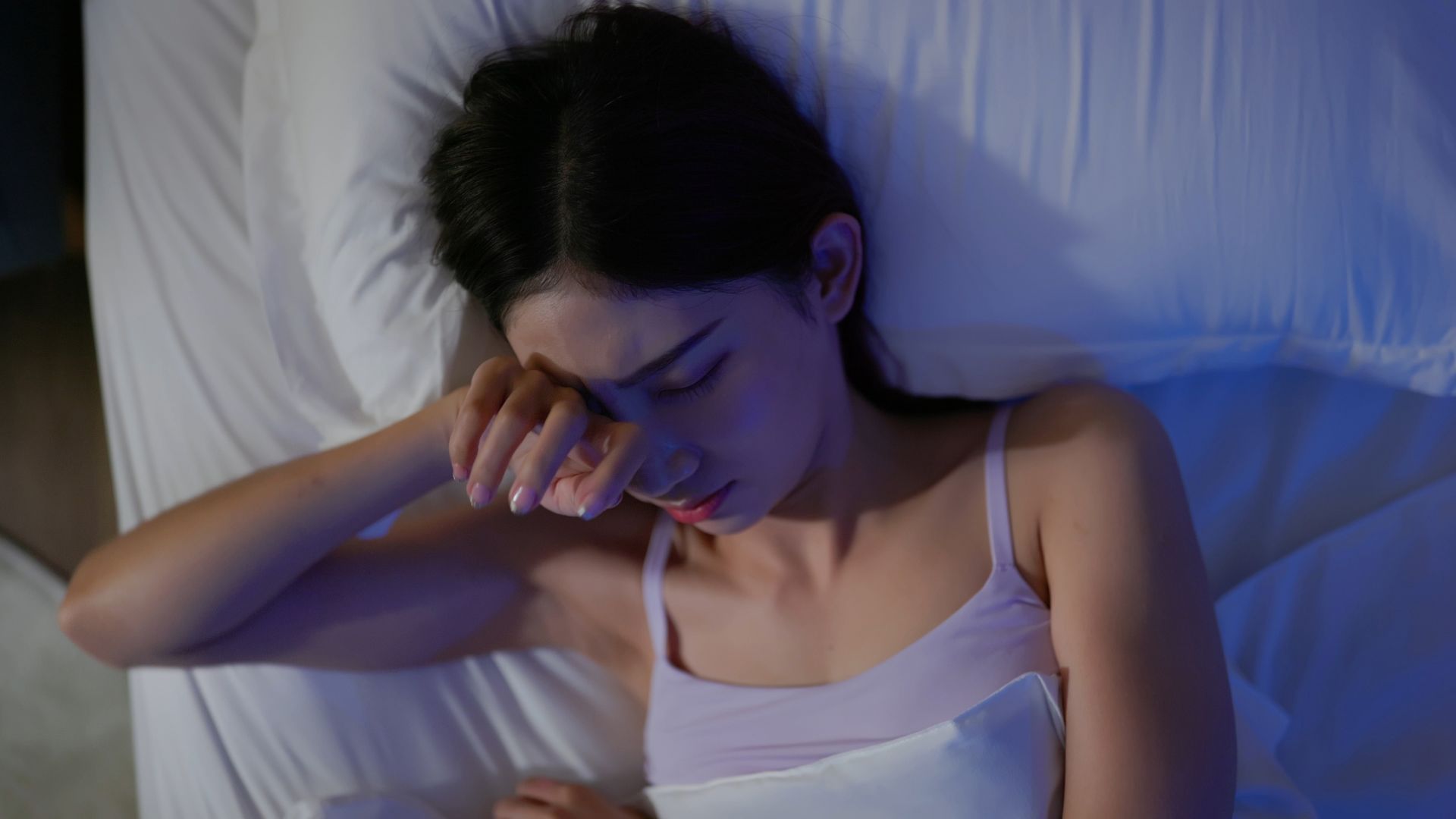
It's well known that the sleep-promoting hormone melatonin plays a key role in sleep. But other hormones, including the reproductive hormones estrogen and progesterone, can also affect our sleep — and potentially even our dreams.
In particular, people may notice differences in the quality of their sleep and the way they dream at different stages of their menstrual cycle, experts told Live Science. Here's how the menstrual cycle might affect sleep and dreaming.
Related: Does melatonin work?
How the menstrual cycle affects sleep and dreams
Sleep is broken down into stages, broadly known as non-rapid eye movement (NREM) and rapid eye movement (REM) sleep. People dream during REM sleep, which usually begins about 90 minutes after a person falls asleep, said Dr. Tania Adib, a consultant gynecologist at The Lister Hospital in the U.K.
NREM sleep is broken up into four stages: easily disturbed light sleep, a deeper intermediate sleep, and two stages of deep sleep, which occurs just before REM sleep, according to the Mayo Clinic. Deep sleep is the most restorative and where the body and brain have time to repair.
Estrogen and progesterone can affect how much time people spend in REM and NREM sleep and whether they wake up often while dreaming.
"There are lots of estrogen and progesterone receptors in the parts of the brain that regulate sleep, and because the levels of these hormones change during the menstrual cycle, it means our sleep also varies across the month," said Dr. Zoe Schaedel, co-founder of Myla Health, a private clinic for women experiencing menopause, perimenopause and reproductive health issues in England.
The menstrual cycle has four stages: menses (when the period occurs), the follicular phase, ovulation, and the luteal phase, according to the Cleveland Clinic. The menstrual cycle "begins" on the first day of a period. Prior to ovulation, which occurs roughly around day 14, estrogen levels rise, Schaedel told Live Science. "Sleep tends to be better-quality in this phase, known as the follicular or proliferative phase."
After ovulation, progesterone levels then begin to rise and eventually overtake estrogen; if a pregnancy doesn't occur, the levels of both hormones drop in the lead-up to menstration. "This is known as the 'luteal phase' and is where we see changes in the structure of sleep," Schaedel said.
Shifting progesterone levels during the luteal phase may partly cause disturbed sleep in the lead-up to a person's period, Schaedel said.
Compared to estrogen, progesterone is thought to be more strongly tied to premenstrual symptoms (PMS), which occur during the luteal phase and commonly include insomnia or oversleeping, according to Mount Sinai. These sleep changes aren't fully understood, but rising progesterone in the luteal phase is linked to increased body temperatures and sweating, which may interfere with sleep because normally, body temperatures decline before and during sleep. The overall ratio of REM to NREM sleep may also decrease during this phase, according to a 2021 review in the journal Frontiers in Neuroscience.
Progesterone and estrogen help modulate chemical messengers in the brain — namely, serotonin and gamma-aminobutyric acid (GABA) — which regulate mood and stress levels, according to Mount Sinai. Anxiousness and depressed mood due to PMS may undermine people's attempts to fall asleep, and physical symptoms, like body aches and nausea, may also help explain why people experiencing PMS are prone to sleep disruptions, per the Frontiers in Neuroscience review.
Melatonin production and sensitivity may also change during the luteal phase, some studies hint, but the research is "not sufficient" to draw strong conclusions.
Sleep disturbances in the luteal phase may increase the likelihood that individuals remember their vivid dreams, Schaedel said.
"If sleep fragments REM, or you wake up shortly after the REM stage, you are far more likely to remember your dreams," Adib told Live Science.
One 2019 study hinted that hormones may also affect the types of dreams a person has. The study asked hundreds of women to recall the previous night's dreams. Of the women who could remember, those in the luteal phase more often reported their dreams as being "pleasant," while those in other parts of the menstrual cycle were more likely to report their dreams being "unpleasant."
However, it's unclear whether this result would carry over to other, larger groups of people.







